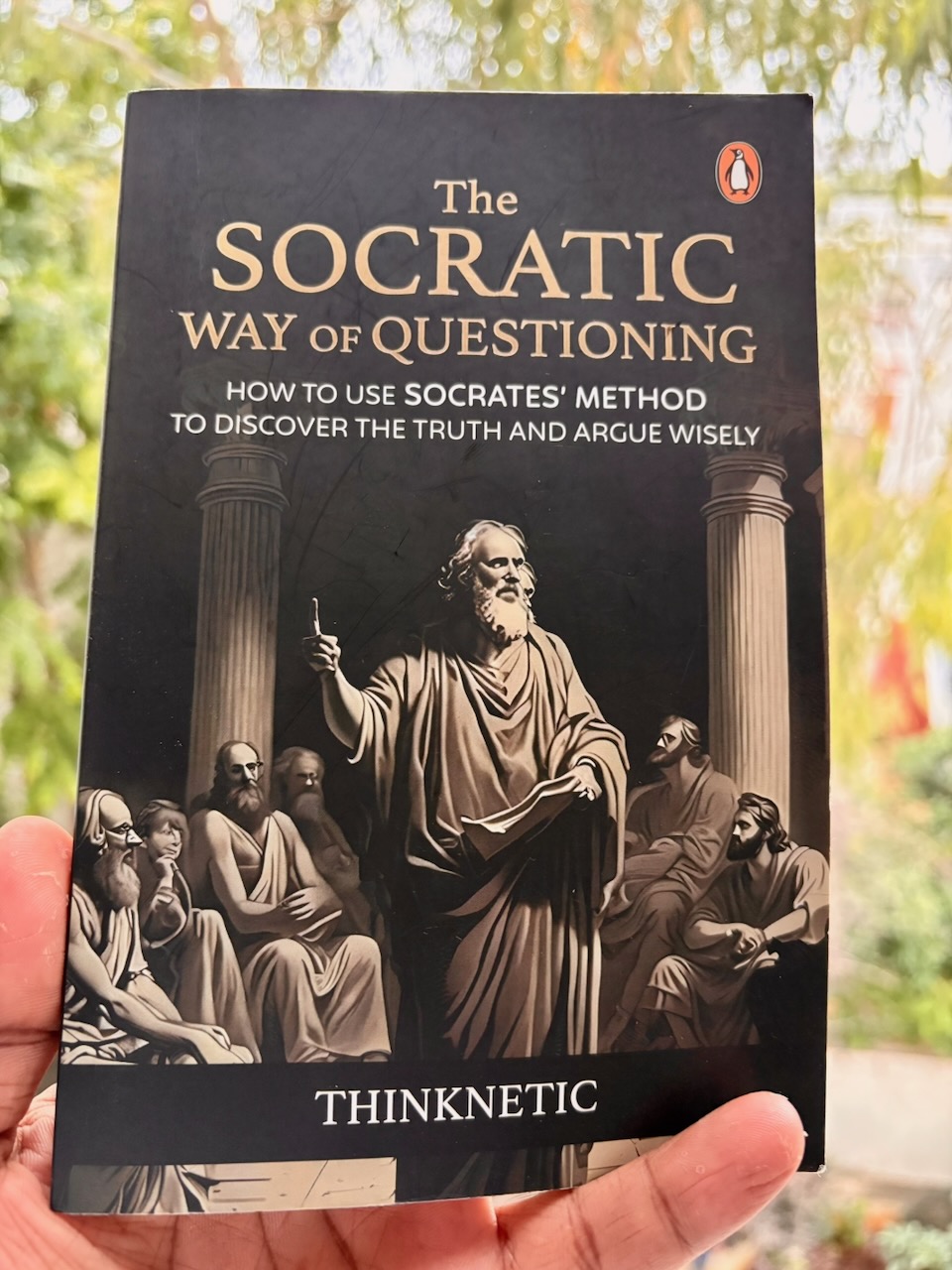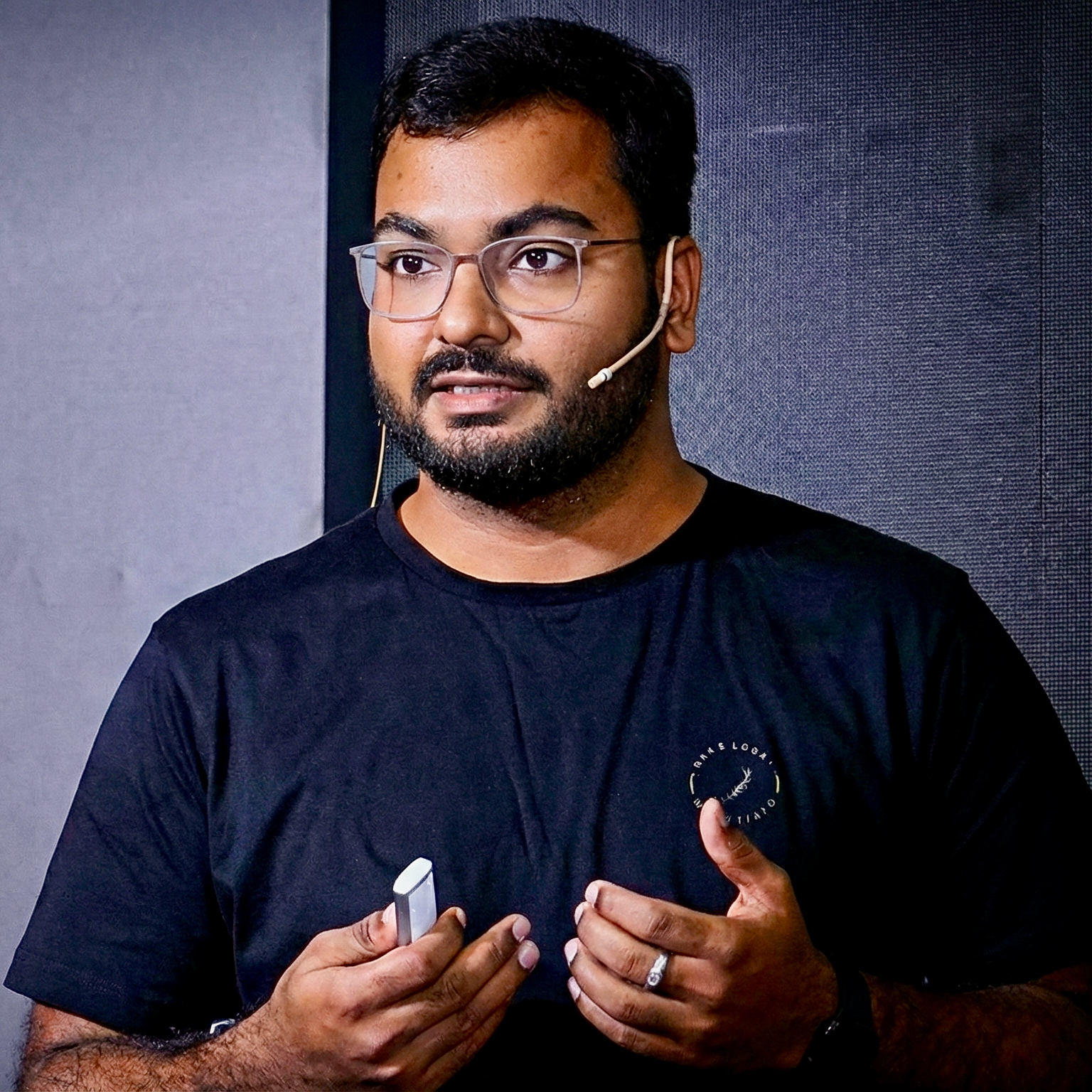The Socratic Way of Questioning
Reading notes from The Socratic Way of Questioning by Thinknetic.
Recently I picked up The Socratic Way of Questioning by Thinknetic, and it turned out to be one of those rare books that feels both ancient and modern at the same time. Rooted in the timeless techniques of Socrates, it’s not just about asking questions—it’s about learning how to think better.
This isn’t a heavy philosophy text. It’s more like a practical guide to clearer thinking, deeper conversations, and better problem-solving. The whole idea is centered around one concept: we often accept things at face value, and this book teaches you how to challenge that—not aggressively, but with curiosity.

The Basics: What is Socratic Questioning?
At its core, Socratic questioning is about peeling back the layers of an idea. You don’t jump straight to conclusions—you slow down and ask questions that challenge assumptions, clarify thoughts, and explore consequences.
Thinknetic breaks it down into six types of questions:
- Clarification – “What exactly do you mean?”
- Probing assumptions – “What are you assuming here?”
- Evidence and reasoning – “What supports this idea?”
- Perspective – “Is there another way to look at this?”
- Implications – “What might happen if this is true?”
- Questioning the question – “Why is this question important?”
It’s not about grilling someone—it’s about guiding a conversation in a way that leads to understanding, not just opinions.
What Stood Out to Me
Questioning isn’t about having the right answer
One thing that really stuck with me: you don’t need to know everything. The best conversations often come from not knowing and being open to exploring. That’s where growth happens.
It’s all about tone
The book makes a great point—questions can either open people up or shut them down, and the difference often comes down to tone. A sincere “Why do you believe that?” goes a lot further than a sarcastic version of the same question.
It’s a thinking habit, not a debate tactic
This isn’t a manual for winning arguments. It’s more like mental training for spotting gaps in logic—your own and others’. Over time, it shifts how you approach conversations altogether.
It’s a great tool for conflict and decision-making
Whether it’s a workplace issue, a relationship disagreement, or a big life decision, slowing down to ask thoughtful questions really helps clear the fog. It stops you from reacting emotionally or jumping to conclusions.
Self-questioning is just as important
I went into the book thinking about how to question others better, but one of the most useful takeaways was learning how to question myself. Why do I believe what I believe? Where did those ideas come from? Do they still make sense?
Final Thoughts
If you’re into personal development, communication, or just like thinking more clearly, this book is worth your time. The Socratic Way of Questioning is short, accessible, and filled with practical insights. It makes you realize how often we glide through conversations and decisions on autopilot—and gives you a simple framework to break that habit.
It’s not about being the smartest person in the room. It’s about being the most curious. And that, I think, is a lot more powerful.
